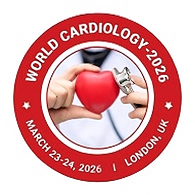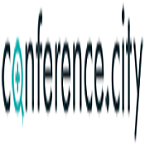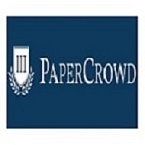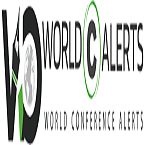Recommended Global Cardiology Webinars & Conferences
Europe & UK
Asia Pacific & Middle East
World Cardiology-2026
About Conference
The 41st World Cardiology Conference (WCC 2026) is set to convene on March 23–24, 2026, in the globally connected city of London, UK. This prestigious two-day event is a flagship platform for cardiologists, cardiovascular surgeons, researchers, clinical practitioners, scientists, academics, healthcare professionals, and industry innovators from around the world to engage, collaborate, and share insights that are shaping the future of cardiovascular medicine.
With over four decades of excellence, WCC has become one of the leading international cardiology conferences, known for fostering global networks, presenting cutting-edge research, and promoting innovative technologies in cardiovascular care. The 2026 edition of the conference is no exception. It aims to bring together thought leaders and experts to discuss and explore the most recent advances in cardiovascular diagnostics, therapeutics, and preventive care across both adult and pediatric populations.
The conference theme, “Global Advances in Cardiology: Bridging Science, Technology, and Humanity,” highlights our commitment to uniting the latest scientific discoveries with real-world clinical applications. As cardiovascular diseases remain the world’s leading cause of death, the need for global collaboration, knowledge exchange, and rapid implementation of evidence-based practices is more critical than ever.
WCC 2026 will feature a rich and diverse scientific program including:
- Plenary sessions and keynote lectures by internationally recognized cardiology experts
- Breakout sessions covering subspecialties such as interventional cardiology, electrophysiology, heart failure, valvular heart disease, cardiac imaging, and cardiovascular surgery
- Panel discussions and case-based symposia focusing on best practices, clinical decision-making, and emerging treatment modalities
- Poster presentations and oral sessions by early-career professionals and researchers
- Workshops and hands-on training on new technologies and procedures
- Exhibitions and industry symposia showcasing the latest innovations in medical devices, diagnostics, and pharmaceutical
Special attention will also be given to artificial intelligence and digital transformation in cardiology, gender differences in cardiovascular risk, global health strategies, personalized medicine, and telecardiology.
The event will offer ample networking opportunities with leading institutions, universities, hospitals, and medical technology companies. Additionally, young scientists and early-career cardiologists will be encouraged to participate through travel grants, award nominations, and dedicated young investigator sessions.
Sessions and Tracks
Interventional cardiology represents a transformative approach to the treatment of cardiovascular diseases by utilizing catheter-based, minimally invasive procedures to diagnose and manage heart conditions. Unlike traditional cardiac surgery, which often requires large incisions and extended recovery periods, interventional techniques involve inserting thin, flexible tubes (catheters) into blood vessels—commonly through the radial artery in the wrist or the femoral artery in the groin—to reach the heart and perform precise therapeutic actions. These procedures are often guided by advanced imaging technologies such as fluoroscopy, intravascular ultrasound, and optical coherence tomography, which allow for real-time visualization of blood vessels and cardiac structures.One of the most common procedures in interventional cardiology is percutaneous coronary intervention (PCI), more commonly known as angioplasty. In this procedure, a balloon-tipped catheter is used to open up narrowed or blocked coronary arteries, often followed by the placement of a stent to keep the artery open and restore normal blood flow to the heart muscle. These interventions have proven highly effective in the treatment of coronary artery disease, especially in patients suffering from angina or those who have had a heart attack. Drug-eluting stents, which release medications to prevent re-narrowing of the arteries, have further improved outcomes and reduced the need for repeat procedures. Beyond coronary interventions, catheter-based treatments have expanded to include structural heart disease management.
Heart Failure Management involves a comprehensive and multidisciplinary approach aimed at improving symptoms, enhancing quality of life, reducing hospitalizations, and prolonging survival for patients with impaired cardiac function. Heart failure occurs when the heart is unable to pump sufficient blood to meet the body's metabolic demands. Management strategies are tailored based on the type of heart failure—whether it is reduced ejection fraction (HFrEF), preserved ejection fraction (HFpEF), or mid-range (HFmrEF)—as well as the severity of symptoms and underlying causes.Initial management begins with lifestyle modifications, including dietary changes such as sodium and fluid restriction, weight monitoring, and regular physical activity under medical supervision. Patient education plays a vital role in empowering individuals to recognize early signs of decompensation, such as sudden weight gain, swelling, or breathlessness, enabling timely intervention. Pharmacological therapy is the cornerstone of heart failure treatment. In HFrEF, guideline-directed medical therapy includes angiotensin-converting enzyme inhibitors (ACEIs) or angiotensin receptor blockers (ARBs), beta-blockers, mineralocorticoid receptor antagonists (MRAs), and the newer angiotensin receptor-neprilysin inhibitors (ARNIs), which have shown to improve survival and reduce hospitalization rates. Sodium-glucose co-transporter 2 (SGLT2) inhibitors, originally developed for diabetes, have emerged as key drugs in heart failure management due to their cardiovascular benefits.
Cardiac Imaging Techniques are essential tools in the diagnosis, evaluation, and management of various cardiovascular diseases. These techniques provide detailed information about the structure, function, perfusion, and viability of the heart, enabling clinicians to make informed decisions regarding patient care. Each imaging modality offers unique advantages, and the choice often depends on the clinical question, patient condition, and availability of equipment.Echocardiography is the most commonly used cardiac imaging technique. It utilizes ultrasound waves to create real-time images of the heart, providing valuable information on chamber size, wall motion, valve function, and overall cardiac performance. Transthoracic echocardiography (TTE) is non-invasive and widely available, while transesophageal echocardiography (TEE) offers higher-resolution images, especially useful in detecting valvular abnormalities, atrial thrombi, or endocarditis. Stress echocardiography, which assesses cardiac function under physical or pharmacological stress, is useful in evaluating ischemia.Cardiac magnetic resonance imaging (CMR) provides highly detailed images of the heart’s structure and function without radiation exposure. It is particularly effective in assessing myocardial tissue characteristics, such as fibrosis, edema, or infiltration, making it invaluable in diagnosing cardiomyopathies, myocarditis, and congenital heart diseases.
Arrhythmias and Electrophysiology encompass the study, diagnosis, and treatment of abnormal heart rhythms resulting from irregular electrical activity in the heart. The heart’s rhythm is controlled by a complex electrical conduction system, and when this system malfunctions, it can lead to arrhythmias—conditions in which the heartbeat may be too fast (tachycardia), too slow (bradycardia), or erratic. Electrophysiology (EP) is the branch of cardiology that focuses specifically on these rhythm disorders, using advanced diagnostic tools and therapies to manage and correct them.Arrhythmias range from benign to life-threatening. Common types include atrial fibrillation (AF), atrial flutter, supraventricular tachycardia (SVT), ventricular tachycardia (VT), ventricular fibrillation (VF), and bradyarrhythmias such as sinus node dysfunction or atrioventricular (AV) block. Atrial fibrillation is the most prevalent and is associated with an increased risk of stroke, heart failure, and reduced quality of life. Ventricular arrhythmias, particularly VF, can lead to sudden cardiac arrest if not treated promptly.Electrophysiology studies (EPS) are specialized procedures that map the heart’s electrical activity by inserting catheters into the heart via blood vessels. These studies help pinpoint the source and nature of the arrhythmia and guide treatment decisions.
Preventive Cardiology focuses on reducing the risk of cardiovascular diseases (CVD) before they develop or worsen. It encompasses a proactive and holistic approach aimed at identifying risk factors early, promoting heart-healthy behaviors, and implementing strategies to prevent the onset or progression of heart-related conditions such as coronary artery disease, hypertension, heart failure, and stroke. This branch of cardiology plays a vital role in improving long-term health outcomes and reducing the global burden of cardiovascular disease, which remains the leading cause of death worldwide.At the core of preventive cardiology is risk assessment, which involves evaluating an individual’s likelihood of developing cardiovascular disease based on factors such as age, family history, lifestyle, blood pressure, cholesterol levels, glucose tolerance, and smoking status. Advanced tools like coronary artery calcium scoring, carotid intima-media thickness measurement, and genetic testing may be used in selected patients for more precise risk stratification.Lifestyle modification is the foundation of prevention. This includes promoting a balanced diet rich in fruits, vegetables, whole grains, lean proteins, and healthy fats while limiting salt, sugar, and processed foods.
Pediatric Cardiology is a specialized branch of cardiology focused on diagnosing, treating, and managing heart conditions in fetuses, infants, children, and adolescents. Unlike adult cardiology, which often deals with acquired heart disease, pediatric cardiology primarily addresses congenital heart defects (CHDs)—structural abnormalities of the heart present at birth—as well as rhythm disorders, cardiomyopathies, and other pediatric-specific cardiovascular issues. This field plays a vital role in ensuring healthy heart development and function from the earliest stages of life.Congenital heart defects are the most common type of birth defect and range from simple conditions like small atrial septal defects (ASDs) or ventricular septal defects (VSDs) to complex anomalies such as tetralogy of Fallot, transposition of the great arteries, and hypoplastic left heart syndrome. Many of these conditions require early diagnosis, which can often be achieved through fetal echocardiography—an imaging technique used during pregnancy to assess the developing heart. Early detection allows for planned delivery and immediate care after birth, improving outcomes significantly.Echocardiography remains the cornerstone diagnostic tool in pediatric cardiology. It is safe, non-invasive, and highly effective in visualizing the structure and function of the heart in children. Other diagnostic modalities include electrocardiography (ECG), cardiac MRI, CT angiography, and cardiac catheterization, which is sometimes both diagnostic and therapeutic. Treatment strategies in pediatric cardiology depend on the specific condition and severity.
Cardiometabolic Syndrome refers to a cluster of interrelated risk factors that significantly increase an individual’s likelihood of developing cardiovascular disease (CVD), type 2 diabetes mellitus (T2DM), and stroke. These risk factors often include central (abdominal) obesity, insulin resistance, elevated blood pressure, dyslipidemia (high triglycerides and low HDL cholesterol), and impaired glucose tolerance. When present together, these conditions create a synergistic effect that accelerates the progression of metabolic and cardiovascular disorders, making early identification and management critical.The syndrome is primarily driven by insulin resistance and visceral adiposity. Excess fat around the abdomen contributes to hormonal and inflammatory changes that disrupt the body's ability to use insulin effectively, leading to elevated blood sugar levels and increased fat in the bloodstream. Over time, this metabolic dysfunction stresses the cardiovascular system, promoting atherosclerosis, hypertension, and eventual organ damage.Lifestyle factors play a central role in the development of cardiometabolic syndrome. Poor dietary habits, physical inactivity, chronic stress, smoking, and inadequate sleep are all associated with the emergence of these risk factors.
Valvular Heart Diseases (VHDs) are conditions that affect one or more of the heart’s four valves—the aortic, mitral, tricuspid, and pulmonary valves—impairing their ability to regulate the normal flow of blood through the heart. These valves ensure unidirectional blood flow by opening and closing with each heartbeat. When valves become damaged or diseased, they may fail to open properly (stenosis) or fail to close completely (regurgitation or insufficiency), leading to compromised heart function and a range of clinical symptoms.Valvular diseases can be congenital (present at birth) or acquired later in life due to various causes. Common acquired causes include rheumatic fever, degenerative changes due to aging, infective endocarditis, and calcification, especially of the aortic valve. The most prevalent types of VHD in adults are aortic stenosis and mitral regurgitation.Aortic stenosis (AS) is characterized by the narrowing of the aortic valve opening, most commonly due to age-related calcific degeneration. It leads to increased resistance against blood ejection from the left ventricle, eventually causing left ventricular hypertrophy, heart failure, or even sudden cardiac death if left untreated. Mitral regurgitation (MR), on the other hand, involves the backflow of blood from the left ventricle into the left atrium during systole, leading to volume overload, atrial enlargement, and pulmonary hypertension over time.
Cardiac Surgery Innovations have dramatically transformed the landscape of cardiovascular care, offering safer, less invasive, and more effective treatment options for a wide range of heart conditions. Over the past few decades, technological advancements, improved surgical techniques, and multidisciplinary approaches have significantly enhanced patient outcomes, shortened hospital stays, and reduced complications. These innovations have not only refined traditional procedures but have also introduced groundbreaking alternatives for patients who are high-risk or inoperable by conventional standards.One of the most impactful developments in cardiac surgery is minimally invasive cardiac surgery (MICS). Unlike traditional open-heart surgery that requires a large sternotomy (chest incision), MICS uses small incisions, specialized instruments, and often video assistance to perform complex operations. This approach is associated with less trauma, reduced blood loss, faster recovery, and decreased risk of infection. Procedures such as mitral valve repair, atrial septal defect closure, and coronary artery bypass grafting (CABG) can now be performed through these minimally invasive techniques in select patients.Another revolutionary advancement is robot-assisted cardiac surgery, which utilizes robotic systems like the da Vinci Surgical System to provide surgeons with enhanced precision, dexterity, and visualization.
Women’s Cardiovascular Health is an essential and increasingly recognized focus in modern medicine, emphasizing the unique aspects of heart disease presentation, risk factors, diagnosis, and treatment in women. Cardiovascular disease (CVD) is the leading cause of death among women worldwide, yet it has historically been underdiagnosed and undertreated due to differences in symptoms, biological factors, and socio-cultural perceptions compared to men.One of the most critical challenges in women’s heart health is that symptoms of heart disease often present differently. While chest pain remains a common symptom, women are more likely to experience atypical signs such as fatigue, shortness of breath, back or jaw pain, nausea, palpitations, or lightheadedness—symptoms that can be mistakenly attributed to stress, anxiety, or hormonal changes. As a result, women often experience delays in diagnosis and treatment, which can lead to worse outcomes.Biological and hormonal factors also influence cardiovascular health in women. Estrogen is thought to have a protective effect on the cardiovascular system before menopause. However, after menopause, the decline in estrogen levels contributes to increased risks of hypertension, dyslipidemia, and atherosclerosis.
Hypertension and Vascular Health are deeply interconnected, as elevated blood pressure is one of the most significant modifiable risk factors affecting the overall function and integrity of the vascular system. Hypertension, or high blood pressure, occurs when the force of blood against the arterial walls is consistently too high, typically defined as a reading above 130/80 mmHg. Over time, this increased pressure places stress on blood vessels, contributing to damage, stiffening, and a range of cardiovascular complications.The vascular system—comprising arteries, veins, and capillaries—relies on flexible, elastic blood vessels to regulate blood flow efficiently. Chronic hypertension disrupts this balance, leading to endothelial dysfunction, where the inner lining of the blood vessels becomes less effective at controlling vascular tone, blood clotting, and inflammation. This dysfunction is a key early step in the development of atherosclerosis, a condition where plaque builds up in the arteries, narrowing them and reducing blood flow.Hypertension accelerates the aging of the vasculature by promoting arterial stiffness, increasing the workload on the heart, and raising the risk of heart failure, stroke, kidney disease, peripheral artery disease, and even cognitive decline. Organs that rely on delicate microvascular networks, such as the kidneys, brain, and eyes, are especially vulnerable to long-term high blood pressure, leading to complications like chronic kidney disease, vascular dementia, and hypertensive retinopathy.
Cardio-Oncology is an emerging and vital subspecialty that focuses on the prevention, diagnosis, and management of cardiovascular complications in patients undergoing cancer treatment. With advancements in oncology leading to improved cancer survival rates, attention has increasingly turned toward the cardiotoxic effects of cancer therapies and the need to protect heart health during and after treatment. Cardio-oncology bridges the gap between cardiology and oncology, ensuring that patients receive comprehensive care that addresses both cancer and cardiovascular risks.Many cancer treatments, including chemotherapy, targeted therapies, immunotherapies, and radiation, can have adverse effects on the heart and vascular system. These complications can range from subclinical myocardial dysfunction to severe conditions like heart failure, arrhythmias, hypertension, ischemia, and thromboembolic events. The risk varies depending on the type of cancer treatment, the cumulative dose, patient-specific factors (such as age, existing cardiovascular disease, or genetic predisposition), and the presence of other comorbidities.One of the most well-known cardiotoxic agents is anthracycline-based chemotherapy, such as doxorubicin, which is associated with dose-dependent and often irreversible heart damage. HER2-targeted therapies like trastuzumab, commonly used in breast cancer, can also lead to left ventricular dysfunction, although typically reversible.
Regenerative Cardiology is an innovative and rapidly evolving field focused on repairing, regenerating, or replacing damaged heart tissue and restoring normal cardiac function using biological and technological approaches. It aims to address the limitations of conventional therapies for heart disease, particularly in cases such as myocardial infarction (heart attack), heart failure, and cardiomyopathies, where the loss of functional heart tissue is often irreversible with current treatments.At the core of regenerative cardiology is the concept of harnessing the body’s natural healing processes or introducing external regenerative agents to restore heart structure and performance. This can involve a range of strategies, including stem cell therapy, gene therapy, tissue engineering, and the use of biomaterials and bioactive molecules.One of the most explored areas in regenerative cardiology is stem cell therapy. Different types of stem cells—such as embryonic stem cells, induced pluripotent stem cells (iPSCs), mesenchymal stem cells, and cardiac progenitor cells—are studied for their ability to differentiate into heart muscle cells (cardiomyocytes) and promote tissue regeneration. These cells can be delivered directly into the heart muscle via catheter-based techniques, injections, or during cardiac surgery. While early clinical trials have shown promising safety and modest improvements in heart function, challenges remain in ensuring long-term integration, survival, and function of these cells within the damaged myocardium.
Telecardiology & Digital Tools represent a transformative shift in cardiovascular care, leveraging technology to enhance diagnosis, monitoring, and management of heart diseases across distances. As global healthcare systems increasingly embrace digital solutions, telecardiology has emerged as a powerful tool to improve patient outcomes, reduce healthcare disparities, and expand access to timely cardiac care—especially in rural or underserved regions.Telecardiology refers to the use of telecommunications and digital technology to transmit cardiac data—such as electrocardiograms (ECGs), echocardiograms, and vital signs—from patients to healthcare professionals for remote analysis and consultation. This model enables cardiologists to assess and manage patients without requiring in-person visits, making it ideal for follow-up care, chronic disease management, and second opinions.One of the most impactful applications is remote ECG interpretation, where ECGs recorded in ambulances, primary care clinics, or even home settings are transmitted to cardiologists for rapid evaluation. This is particularly critical in acute settings like chest pain or suspected myocardial infarction, where early diagnosis and intervention can save lives.
Artificial Intelligence in Cardiology is redefining the landscape of cardiovascular medicine by introducing powerful tools that can analyze complex data, enhance diagnostic precision, and support clinical decision-making. AI technologies—especially machine learning (ML), deep learning, and natural language processing (NLP)—are being increasingly integrated into cardiology to improve patient outcomes, reduce medical errors, and streamline workflows.One of the most impactful uses of AI in cardiology is in diagnostic imaging. AI algorithms are now capable of interpreting electrocardiograms (ECGs), echocardiograms, cardiac MRIs, and CT scans with remarkable speed and accuracy. These tools can detect subtle abnormalities that might be overlooked by the human eye, such as early-stage cardiomyopathies, valvular disease progression, or ischemic changes. Deep learning systems have shown performance comparable to or even better than expert clinicians in identifying conditions like atrial fibrillation or left ventricular dysfunction from routine ECGs.AI also plays a crucial role in predictive analytics and risk stratification. By analyzing vast datasets, AI can identify patterns and risk factors that predict future cardiovascular events, such as heart attacks, strokes, or heart failure. This enables the development of personalized treatment plans and early interventions for high-risk patients.
Genomics & Precision Cardiology represent a transformative approach to cardiovascular care, shifting from a one-size-fits-all model to personalized prevention, diagnosis, and treatment strategies based on an individual’s genetic makeup. By integrating insights from genomics, precision cardiology aims to identify genetic risks for heart diseases, guide tailored therapies, and ultimately improve patient outcomes.At the core of this field is the understanding that cardiovascular diseases (CVDs)—such as coronary artery disease, cardiomyopathies, arrhythmias, and hypertension—often have complex genetic components. These may involve single-gene (monogenic) disorders like hypertrophic cardiomyopathy or familial hypercholesterolemia, as well as polygenic influences where multiple genetic variants contribute to disease risk in combination with environmental and lifestyle factors.Genomic testing allows for early detection of inherited cardiac conditions. For example, identifying mutations in genes like MYH7, LMNA, or SCN5A can help diagnose cardiomyopathies or channelopathies even before clinical symptoms arise. This enables proactive monitoring, lifestyle adjustments, and timely interventions—potentially preventing sudden cardiac events. Family screening also becomes possible, helping identify at-risk relatives who may benefit from genetic counseling or surveillance.
Emergency and Acute Cardiac Care is a critical area of cardiology focused on the rapid diagnosis, stabilization, and treatment of patients experiencing sudden and life-threatening cardiovascular events. Timely intervention in these situations often makes the difference between survival and death, making this field an essential component of healthcare systems worldwide.The most common conditions requiring emergency cardiac care include acute coronary syndromes (ACS) such as myocardial infarction (heart attack), sudden cardiac arrest, arrhythmias, acute heart failure, hypertensive emergencies, pulmonary embolism, and aortic dissection. These conditions often present with symptoms like chest pain, shortness of breath, palpitations, syncope (fainting), or severe hypotension, necessitating immediate medical evaluation.One of the cornerstones of emergency cardiac care is the rapid triage and diagnosis of acute myocardial infarction. Electrocardiography (ECG) and blood tests for cardiac biomarkers such as troponins are essential tools used in the emergency department to confirm a heart attack. For patients with ST-segment elevation myocardial infarction (STEMI), guidelines recommend primary percutaneous coronary intervention (PCI) within 90 minutes of first medical contact. In settings where PCI is not immediately available, fibrinolytic therapy may be administered. Advanced Cardiac Life Support (ACLS) protocols are followed in cases of cardiac arrest. High-quality cardiopulmonary resuscitation (CPR), early defibrillation for shockable rhythms, and the use of medications such as epinephrine are key components of resuscitation.
Cardiac Rehabilitation is a comprehensive, medically supervised program designed to improve cardiovascular health in individuals recovering from heart-related conditions or procedures. It plays a vital role in secondary prevention, aiming to restore physical fitness, reduce the risk of future cardiac events, and enhance overall quality of life for patients who have experienced heart attacks, undergone cardiac surgery, or been diagnosed with chronic heart conditions such as heart failure or angina.The core components of cardiac rehabilitation include structured exercise training, heart-healthy lifestyle education, psychosocial support, and risk factor management. These elements are tailored to meet each patient’s individual needs, medical history, and fitness level. The program typically begins in a clinical setting soon after hospital discharge and may transition to community-based or home-based rehabilitation as patients gain strength and confidence.Exercise training is a cornerstone of cardiac rehab. Under the supervision of a multidisciplinary team that may include cardiologists, physiotherapists, nurses, and exercise physiologists, patients engage in aerobic and resistance training that helps improve cardiovascular endurance, muscle strength, and circulation. These exercises are carefully monitored to ensure safety and gradually increase in intensity based on the patient’s progress. Lifestyle education in cardiac rehabilitation focuses on key areas such as nutrition, weight management, smoking cessation, and medication adherence.
Clinical Trials in Cardiology play a pivotal role in advancing cardiovascular medicine by evaluating the safety, efficacy, and outcomes of new treatments, diagnostic tools, procedures, and preventive strategies. These trials are essential for the development of evidence-based practices that shape clinical guidelines and improve patient care in the field of cardiology.Cardiology clinical trials are designed to address a wide range of conditions, including coronary artery disease, heart failure, arrhythmias, valvular diseases, hypertension, congenital heart defects, and cardiomyopathies. Trials may involve new pharmaceutical agents, medical devices (like stents, pacemakers, or heart valves), surgical procedures, lifestyle interventions, or digital health technologies. Randomized controlled trials (RCTs) are considered the gold standard in cardiology research. By randomly assigning participants to either the intervention group or a control (often placebo or standard treatment), these studies reduce bias and produce robust, reliable data. Other trial designs include observational studies, cohort studies, and registry-based studies that provide real-world evidence.Notable advancements in cardiology have emerged from clinical trials, such as the use of statins for cholesterol management, dual antiplatelet therapy post-PCI, SGLT2 inhibitors in heart failure, and transcatheter aortic valve replacement (TAVR). Each of these innovations was grounded in clinical trial evidence before becoming standard practice.
Market Analysis
The global cardiology landscape has undergone significant transformation between 2020 and 2030, driven by rapid technological innovation, changing demographic profiles, the growing burden of cardiovascular diseases (CVDs), and major healthcare policy reforms. This decade marks a pivotal period for cardiologists, researchers, device manufacturers, and digital health innovators who are shaping the future of cardiovascular care.The cardiology market, encompassing cardiovascular devices, diagnostic tools, pharmaceuticals, surgical interventions, and digital technologies, was valued at approximately USD 216 billion in 2023. Projections estimate this market will expand to nearly USD 340 billion by 2030, growing at a Compound Annual Growth Rate (CAGR) of 5.3%. This growth is largely attributed to the increasing global prevalence of heart disease, rising healthcare expenditures, and advancements in precision medicine and digital cardiology.Interventional cardiology, electrophysiology, AI in imaging, wearable heart-monitoring devices, and preventive cardiology are among the most rapidly expanding sectors, reflecting the global shift toward personalized, minimally invasive, and data-driven cardiovascular care.
North America remains the dominant player, accounting for over 40% of the global market share in 2024. The region’s well-established healthcare infrastructure, high adoption of advanced devices, and strong presence of key industry players fuel continued growth. The U.S. leads in AI-based cardiology applications, interventional procedures, and cardiovascular research funding.Europe is steadily growing, supported by a rising geriatric population and increasing awareness of cardiovascular risk factors. The European Union’s emphasis on early diagnosis, digital health implementation, and value-based care models has led to more investments in telecardiology and precision medicine. Countries such as Germany, the UK, and France are central to R&D and clinical trial initiatives.Asia-Pacific is projected to be the fastest-growing region, with a CAGR exceeding 8% during 2023–2030. Rapid urbanization, sedentary lifestyles, and increasing rates of hypertension and diabetes have triggered a surge in CVD incidence across countries like China, India, and Japan. Expanding middle-class populations, healthcare reforms, and growing investments from international medtech firms are accelerating adoption of cardiac technologies and telemedicine platforms.Though holding a smaller market share, these regions are witnessing increased healthcare access, greater focus on primary prevention, and partnerships to strengthen local cardiac care services. Efforts to reduce mortality from ischemic heart diseases and congenital disorders are gaining traction, particularly in Brazil, South Africa, and GCC countries.
Key Market Segments
Interventional Cardiology Devices: This segment is expected to grow from USD 18.6 billion in 2025 to over USD 26 billion by 2030. Drug-eluting stents, structural heart therapies, and robotic-assisted PCI are key contributors.Cardiology Imaging and Diagnostics: High demand for echocardiograms, cardiac MRI, and CT imaging has surged, particularly with integration of AI and machine learning for enhanced interpretation and risk prediction.Cardiac Rhythm Management (CRM): Pacemakers, implantable cardioverter defibrillators (ICDs), and electrophysiology solutions continue to see growth, especially for managing arrhythmias and heart failure.Digital Cardiology & Telehealth: Post-pandemic, adoption of remote monitoring, digital ECG, and telecardiology platforms has increased rapidly. These tools improve access in rural and underserved regions and enable ongoing heart failure and hypertension management.Pharmaceuticals & Therapeutics: Novel anticoagulants, lipid-lowering therapies, and gene-based treatments are reshaping medical therapy approaches, particularly in precision cardiology
Group Discounts
World Cardiology-2026 | March 23–24, 2026 | London, UK
Unlock Exclusive Savings with Our Group Discount!
Join us at the 41st World Cardiology Conference in the vibrant city of London and take advantage of our special group registration offer—perfect for academic institutions, hospitals, research centers, and clinical teams.
Offer Highlights:
- Discount: Enjoy 30% off the total registration fee
- Eligibility: Groups of 5 or more participants
- Early Bird Deadline: Valid until December 28, 2025
Engage in visionary discussions, connect with leading cardiology professionals from around the globe, and explore breakthrough innovations shaping the future of heart care.
Whether you're a researcher, clinician, educator, or industry leader, this is your opportunity to participate at a reduced rate while contributing to the global advancement of cardiovascular medicine.
Register Your Group Today: https://worldcardiology.europeannualconferences.com/registration.php
Visit: https://worldcardiology.europeannualconferences.com/
Email: enquiries@europeconferences.com
Call: +44 330 818 7501
Collaborate, Innovate, and Transform Heart Health—Together in London!
Past Conference Report
WORLD CARDIOLOGY 2025
40th World Cardiology Conference [World Cardiology 2025] is an international conference, which is going to held during FEBRUARY 24-25, 2025 at LONDON, UK. World Cardiology 2025 will be an investigation of new research Innovation in the field of Cardiology and spread the most recent advancements in heart disease prevention and rehabilitation which melds brief keynote presentations, speaker talks, Exhibition, Symposia, Workshops, Speaker sessions. Argument on new technology enhancement in the field of Cardiovascular Disease and current practices in cardiovascular therapy, Cardiac progenitor cells, Hypertension for the primary care clinician, Stent procedure, Balloon Valvuloplasty, Coronary thrombectomy, Non-invasive cardiac imaging, Heart failure, Congestive heart failure, Sports Cardiology and more. Differentiating heart disease and other cardiac conditions constitute a team of healthcare professionals, of which the Cardiology technologist is a key player.
Conference Name
|
Conference Name |
Place |
Date |
|
40th World Cardiology Conference |
LONDON | UK |
FEBRUARY 24-25 |2025 |
Theme: Acquire to make your Heart healthier in the midst of outbreak
Conference Series organizes 3000+ conferences, 1000+workshops and 1000+symposiums on Clinical, Medicine, Nursing, cardiology diagnosis workshops, cardiac nursing conferences, Cardiology Conferences, Heart conferences and Science & Technology every year across USA, Europe, Asia, Middle East, Australia and UK with support from 1000 more scientific societies and Publishes 700 open access journals which contains over 30000 eminent personalities, reputed scientists as editorial board members.
We cordailly welcome to our upcoming event 41st World Cardiology Conference on March 23-24, 2026 in London, UK.
For more info, PS: https://worldcardiology.europeannualconferences.com/
Past Reports Gallery
To Collaborate Scientific Professionals around the World
Conference Date March 23-24, 2026
For Sponsors & Exhibitors
Speaker Opportunity
Useful Links
Past Conference Report
Supported By
All accepted abstracts will be published in respective Conference Series International Journals.
Abstracts will be provided with Digital Object Identifier by









